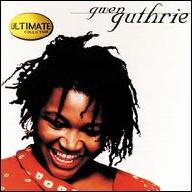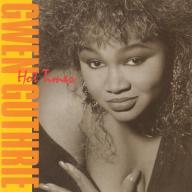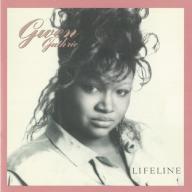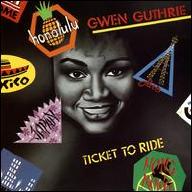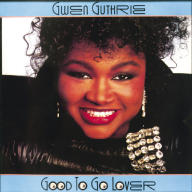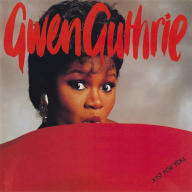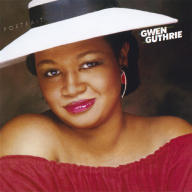Born in Newark, New Jersey, in 1950, Guthrie started singing in high school with a female quartet called the Ebonettes. (Another one of its members, Brenda White King, pursued music like Guthrie and became an in-demand session singer.) Guthrie sang lead for a group (East Coast) formed by Larry Blackmon (later of Cameo) in New York, but got her big break when she was asked to do a background session for Aretha Franklin, the number one R&B hit I'm in Love, from 1974. Six months later, Guthrie signed as a staff writer with Bert de Coteaux Productions and co-wrote Love Don't Go Through No Changes, the first hit for Sister Sledge, and many others with Grant. The collaboration didn't last long, however.
Guthrie continued to write with a variety of partners, and supplied backing vocals to many recording sessions. Working with Peter Tosh in the late '70s, Guthrie befriended reggae stars Sly Dunbar and Robbie Shakespeare, who invited her to Nassau to record vocals for an album they were producing. Hearing her unique voice in the studio, Island Records founder Chris Blackwell inked her to a contract, and the Dunbar/Shakespeare project, assisted by David Conley of Surface, became her first solo release, a self-titled LP. She did score a dancefloor hit with the album's It Should Have Been You. Her second LP, Portrait, released in 1983, followed a similar formula. Album number three, Good to Go Lover, dropped in 1986, and spawned her chart-topper Ain't Nothin' Goin' on but the Rent, plus the torching ballad You Touched My Life. On Lifeline (1988), Guthrie was more involved in the writing and production. Hot Times was Guthrie's final LP release, hitting the streets in 1990. Like the previous LP, she wrote nearly everything, except for a moving remake of Stephanie Mills' Never Knew Love Like This Before. GuthrieGuthrie died on February 3, 1999, of uterine cancer in Orange, New Jersey. ~ Andrew Hamilton, Rovi


